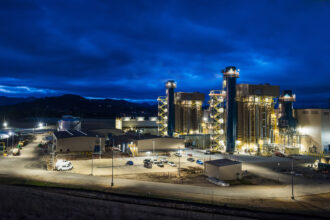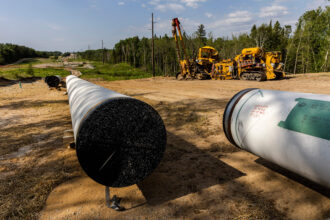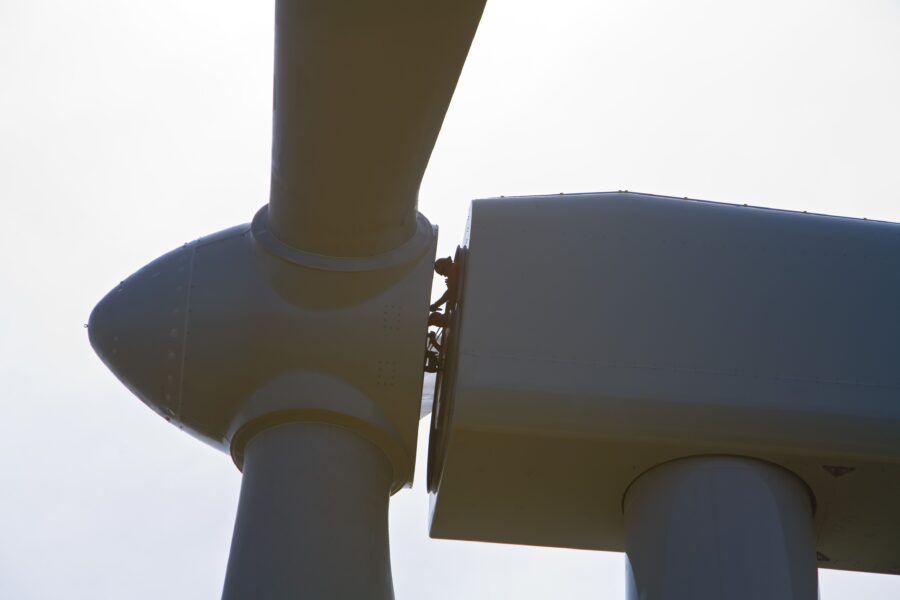Republicans in Congress are pressing for a vote on Monday on one of the stranger elements of their environmental agenda — a ban on the adoption of energy-efficient light bulbs. A bill championed by presidential contender Michele Bachmann and others would repeal a law phasing out incandescent bulbs from 2012.
According to some reports, the Republican leadership in the House of Representatives was pressing to introduce the bill under rules that would limit debate, but also require a two-thirds vote to pass. Energy-saving bulbs were seen as an entirely harmless innovation — even by the same Republicans who now oppose them — when the lighting efficiency measure was signed into law by the then president, George W Bush, as part of a broader energy package.
The 2007 law would have started phasing out old-fashioned 100-watt bulbs starting in January 2012, with an aim of making light bulbs more than 25 percent efficient. Incandescent bulbs emit most of the energy they consume as heat.
Fred Upton, now the chair of the energy and commerce committee, supported the law — a vote which has come back to haunt him in a more conservative Congress. The initiative also had the support of lighting manufacturers.
But the new breed of Tea party conservatives, encouraged by chat show hosts like Rush Limbaugh, have cast the promotion of the more efficient LED and CFL lights as a shining example of needless government interference.
They also argue that the bulbs cost more than the old-fashioned variety and are health hazards, because they contain mercury. But their most passionately voiced argument is freedom. Hanging on to the old-style bulbs is really about personal liberty, they say.
Republicans in the Texas, Pennsylvania, and South Carolina state legislatures are also working on measures to keep burning incandescent bulbs. “This is about more than just energy consumption, it is about personal freedom,” said Joe Barton, the Texas Republican behind the new bill, said in a statement after last year’s mid-term election.
“Voters sent us a message in November that it is time for politicians and activists in Washington to stop interfering in their lives and manipulating the free market. The light bulb ban is the perfect symbol of that frustration. People don’t want Congress dictating what light fixtures they can use.”
However the energy secretary, Steven Chu, has argued that the 2007 law does not amount to a blanket ban on all incandescent bulbs. But it does require those bulbs to be more efficient.
“These standards do not ban incandescent bulbs,” Chu told a conference call with reporters. “You’re still going to be able to buy halogen incandescent bulbs. They’ll look exactly like the ones you’re used to. They can dim. They cut out instantly. They look and feel the same.”
The Natural Resources Defense Council also produced a study on Friday suggesting that the energy-saving bulbs would save the average American household $85 a year on their electricity bill. They would also eliminate the need for 30 large power plants, reporters were told.
About This Story
Perhaps you noticed: This story, like all the news we publish, is free to read. That’s because Inside Climate News is a 501c3 nonprofit organization. We do not charge a subscription fee, lock our news behind a paywall, or clutter our website with ads. We make our news on climate and the environment freely available to you and anyone who wants it.
That’s not all. We also share our news for free with scores of other media organizations around the country. Many of them can’t afford to do environmental journalism of their own. We’ve built bureaus from coast to coast to report local stories, collaborate with local newsrooms and co-publish articles so that this vital work is shared as widely as possible.
Two of us launched ICN in 2007. Six years later we earned a Pulitzer Prize for National Reporting, and now we run the oldest and largest dedicated climate newsroom in the nation. We tell the story in all its complexity. We hold polluters accountable. We expose environmental injustice. We debunk misinformation. We scrutinize solutions and inspire action.
Donations from readers like you fund every aspect of what we do. If you don’t already, will you support our ongoing work, our reporting on the biggest crisis facing our planet, and help us reach even more readers in more places?
Please take a moment to make a tax-deductible donation. Every one of them makes a difference.
Thank you,













